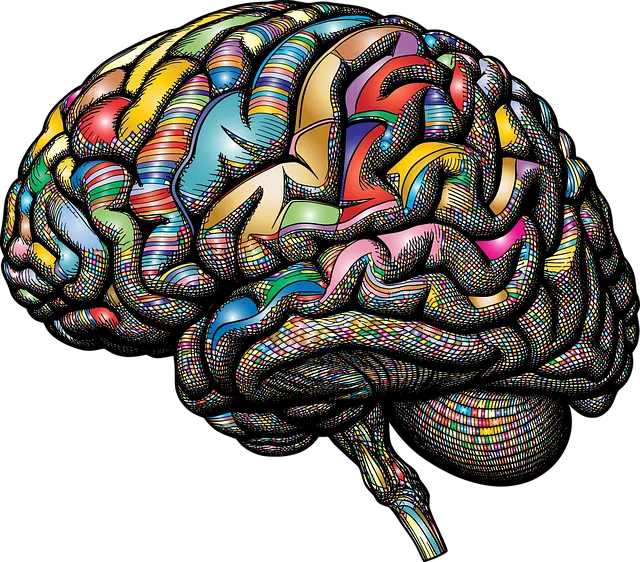The Kaiser Permanente mental health access center in Englewood plays a vital role in crisis intervention, offering immediate short-term strategies for stabilizing individuals facing severe distress. With a multidisciplinary team and community collaboration, the center destigmatizes mental health discussions and empowers patients through personalized care, early recognition of distress signs, education on coping skills and mindfulness, and post-crisis support. Their empathetic communication methods and tailored interventions ensure positive patient outcomes and long-term emotional well-being.
In today’s fast-paced world, crisis intervention plays a pivotal role in healthcare. The Kaiser Permanente Mental Health Access Center in Englewood serves as a beacon, offering vital guidance to professionals navigating distressing situations. This article delves into the essential strategies for crisis intervention, covering understanding the role, identifying signs of distress, implementing effective communication, and providing post-crisis support. By exploring real-world examples like the Kaiser Permanente center, we equip healthcare workers with tools to make a lasting impact on those in need.
- Understanding Crisis Intervention: A Vital Role for Healthcare Professionals
- The Kaiser Permanente Mental Health Access Center in Englewood: A Resource Hub
- Identifying Signs of Distress: Early Detection Strategies
- Implementing Effective Communication Techniques during a Crisis
- Post-Crisis Support and Follow-Up Care: Ensuring Long-Term Well-being
Understanding Crisis Intervention: A Vital Role for Healthcare Professionals

Crisis intervention plays a vital role in healthcare, especially at centers like Kaiser Permanente’s mental health access center in Englewood. With increasing demand and high-stress environments, understanding and implementing effective strategies is crucial for healthcare professionals. It involves providing immediate, short-term support to individuals facing severe or sudden distress, aiming to stabilize the situation and promote recovery.
Healthcare providers at these centers are on the front line, often dealing with burnout prevention strategies while offering coping skills development and mental health education programs design. Their quick response and specialized training can significantly impact patients’ outcomes, ensuring they receive the necessary care during crises and setting them on a path to long-term well-being.
The Kaiser Permanente Mental Health Access Center in Englewood: A Resource Hub

The Kaiser Permanente Mental Health Access Center in Englewood stands as a beacon of hope and support for individuals navigating mental health challenges. This resource hub offers comprehensive services tailored to address a wide range of psychological needs, from depression prevention and management to emotional well-being promotion techniques. The center leverages the expertise of a multidisciplinary team comprising psychiatrists, psychologists, social workers, and counselors, ensuring personalized care that respects diverse cultural backgrounds and individual circumstances.
Located in a vibrant community, the access center actively collaborates with local mental health organizations, schools, and community leaders to implement effective Mental Health Policy Analysis and Advocacy strategies. Through these partnerships, they foster an environment where mental health is prioritized, destigmatized, and openly discussed. The result is a supportive ecosystem that empowers individuals to take charge of their emotional well-being and lead fulfilling lives.
Identifying Signs of Distress: Early Detection Strategies

Recognizing signs of distress early is a cornerstone of crisis intervention, and the Kaiser Permanente Mental Health Access Center in Englewood plays a vital role in educating communities on this front. Often, individuals experiencing emotional turmoil exhibit subtle cues that, if identified, can prevent crises from escalating. These signs might include sudden changes in behavior, increased isolation, or persistent feelings of sadness and anxiety. The center encourages folks to be vigilant, not only for themselves but also for loved ones.
One effective strategy is fostering empathy and compassion through self-care practices and building strong social connections. The Kaiser Permanente center promotes mindfulness exercises, therapy sessions, and support groups as means to enhance emotional well-being. Additionally, cultivating compassion towards others can create a supportive environment where individuals feel understood and encouraged to seek help when needed, mirroring the beneficial effects of empathy-building strategies.
Implementing Effective Communication Techniques during a Crisis

During a crisis, effective communication is paramount. At the Kaiser Permanente Mental Health Access Center in Englewood, professionals employ active listening to ensure every individual involved feels heard and understood. This involves giving full attention to the speaker, paraphrasing their words to confirm comprehension, and asking open-ended questions to encourage them to express their thoughts and feelings more fully. Such empathetic communication can help de-escalate tense situations and foster a sense of safety and trust.
Additionally, mental health professionals at the Kaiser Permanente Mental Health Access Center leverage coping skills development techniques as part of crisis intervention. They guide individuals through strategies like deep breathing exercises, mindfulness practices, and cognitive reframing to manage their mood and navigate distressing emotions. By addressing not just symptoms but also the underlying causes, the center promotes mental illness stigma reduction efforts while equipping clients with lasting tools for emotional resilience.
Post-Crisis Support and Follow-Up Care: Ensuring Long-Term Well-being

Post-crisis support and follow-up care play a pivotal role in ensuring individuals’ long-term well-being after they’ve navigated through challenging situations. This phase is essential, as it provides an opportunity to reinforce resilience and promote recovery. At the Kaiser Permanente Mental Health Access Center in Englewood, professionals offer tailored interventions to address the unique needs of each individual.
Effective communication strategies are at the core of this process, fostering open dialogue between individuals and their healthcare providers. By enhancing self-esteem improvement through supportive interactions, the center promotes a sense of agency and empowerment. Moreover, prioritizing cultural competency training among healthcare providers ensures a deeper understanding of diverse perspectives, creating an inclusive environment where individuals feel heard and respected.
In light of the above discussions, it’s clear that crisis intervention strategies are a critical component of healthcare, with the Kaiser Permanente mental health access center in Englewood serving as a vital resource hub. By understanding these interventions, identifying signs of distress early on, and employing effective communication techniques, professionals can ensure prompt and compassionate support for those in crisis. Following up with post-crisis care is equally essential to foster long-term well-being and prevent future occurrences. These comprehensive strategies not only help individuals navigate their immediate challenges but also contribute to building a more resilient and supportive community.






